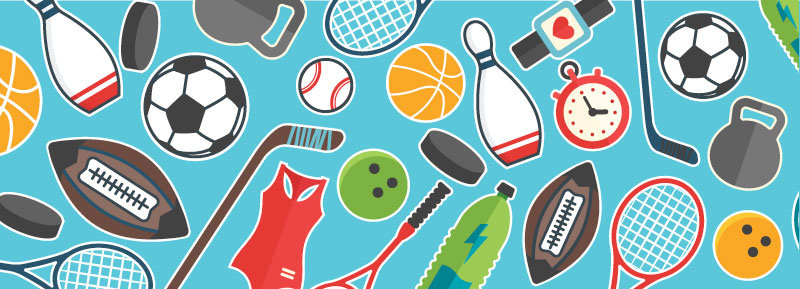
“Sports teach you how to be quick. Injuries teach you how to slow down.”
Yao Ming
Spring = Sports:
In Spring our fancy turns to thoughts of getting onto the field with our friends and running out those winter blahs. But before you do, let’s take a minute to think about how to prevent the injuries that send us back to the bench.
The most common injuries are strains and pulls. These happen when we push our body past its limits:
- Ankle Strain
- Groin Pull
- Hamstring Strain
- Shin splints
- Knee Injuries, like ACL tears
- Tennis elbow
Notice that most of these are below the belt, and they can all be usually avoided.
In order to prevent injuries, we need to know how they happen in the first place. The prime culprit of getting injured is often over-exuberance. Sports are a blast, but you’ll enjoy them longer if you take time to prepare and pace yourself when you’re out there:
- Cold Muscles: jumping out of the car and running onto the football field is asking for a muscle strain or ligament tear. Take the time to do a light warm up and stretch.
- Jumping Back In: if you haven’t played in awhile, it will be tempting to charge out there and tear up the grass. But sports use muscles that not see any use otherwise. Take it slow and you’ll have more fun in the long run.
- Playing when Injured: your body needs time to heal from any injury. Rushing any healing process is asking for the injury to repeat itself, only worse.
How to Play Safe:
From accidents to tackles, getting hurt can sometimes be a part of playing the game. But the majority of injuries are preventable, and here’s how:
- Warm up and stretch: don’t ask your muscles to go from sitting down to sprinting in 5 seconds. A warm-up before gets the blood flowing, increases flexibility, and decreases incidence and severity of strain injuries. Don’t forget the cool-down.
- Wear Protective Gear: being macho just isn’t worth it. The smart ones wear the helmets, pads, gloves, etc.
- Bring the Right Equipment: different sports require different equipment. If you wear running shoes instead of cleats to soccer, you could trip or slip at full sprint and take an avoidable fall.
- Know the Rules: don’t assume that everyone is playing with the same rulebook, especially when it comes to how much contact is in the game. Clarify the rules with both teams.
- Know your Limits: when you start to get seriously fatigued, dizzy, or have already sustained an injury, stop and rest. Sports when you’re not fully aware become very dangerous.
- Drink: No not that kind (save that for after the game). Staying hydrated matters. It keeps you focused, keeps your energy up, and is just all around a good idea. If our bodies are internal combustion engines, water is the oil that keeps the parts moving smoothly. Have a tall glass of water the night before a big game, especially if it’s going to be hot, to give the water time to work through your system. Drink during and after the game as well. If you are in a hot environment or a prolonged play time, consider the need for other fluids with electrolytes.
If you do sustain an injury, visit one of clinics. You may be eligible for our Fastrack program which will reduce your wait time.